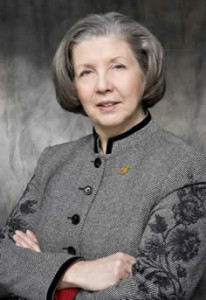Review of REDLIGHT
![]() Last week Barbara Glickstein and I attended the premiere of Redlight, a film that depicts the destructive nature of sex trafficking in Cambodia and the strength of several young individuals who have or are in the process of moving beyond their traumatic experiences. This beautifully shot and well-produced film introduces its viewers to a number of girls and boys who tell us their stories as survivors of sex trafficking. Through these characters we learn about the harshness of the sex trade and gain insight into the trauma of being abducted or sold into the brothels of Cambodia and the difficulties of acclimating back to life outside the brothel.
Last week Barbara Glickstein and I attended the premiere of Redlight, a film that depicts the destructive nature of sex trafficking in Cambodia and the strength of several young individuals who have or are in the process of moving beyond their traumatic experiences. This beautifully shot and well-produced film introduces its viewers to a number of girls and boys who tell us their stories as survivors of sex trafficking. Through these characters we learn about the harshness of the sex trade and gain insight into the trauma of being abducted or sold into the brothels of Cambodia and the difficulties of acclimating back to life outside the brothel.
The film neatly and effectively provides a framework for these girls and boys to communicate their disturbing experiences to a wide audience. Though it does feel quite staged at times, it provides a platform from which the abused youth can speak their truths. These highly impacting narratives are sure to grab attention and invite empathy from all kinds of viewers, especially those who have not had much informational exposure to sex trafficking. It humanizes the issue by depicting it through the voices of the survivors and activists, thereby allowing people, of all levels of awareness on this issue, glances into the world of sex trafficking in Cambodia and encourages them to relate to the survivors on a human level.
This documentary hints that the real change comes from within the afflicted communities. One of the superstars of the film, an assiduous campaigner for the human rights of victims and survivors of sex trafficking, Somaly Mam, who was herself forced into prostitution at a young age, so bravely advocates for an end to human trafficking and more rehabilitational resources for the survivors. Her impressive activism on this issue highlights the need for change to sprout from the individuals and communities who are affected by them. This empowering and inspiring vision of change is also somewhat problematic in that it places a great burden on the oppressed themselves, requiring victims to not only become survivors but activists as well. This is why policy should focus on partnering with existing local efforts in order to maximize both of their effects.
At the Q & A one man asked if the producers had sent Obama a copy of the film. After a few chuckles from the audience, Susan Bissell, UNICEF’s Chief of Child Protection, jumped in to suggest that as great as it would be to affect change on a national level, it is at the state level where important legislation can be passed, and policymakers can be made aware of the issue at hand. I wonder if the emotive impact of this film is enough to convince policymakers to legislatively address the issue? Perhaps this film can be seen as opening the door to policy change, by inviting those of all levels of knowledge on the issue access to the powerful stories of the afflicted. However, it doesn’t ensure entry through the door, only a glimpse to the inside.
Maddie Neufeld, CHMP Intern
Last week Barbara Glickstein and I




